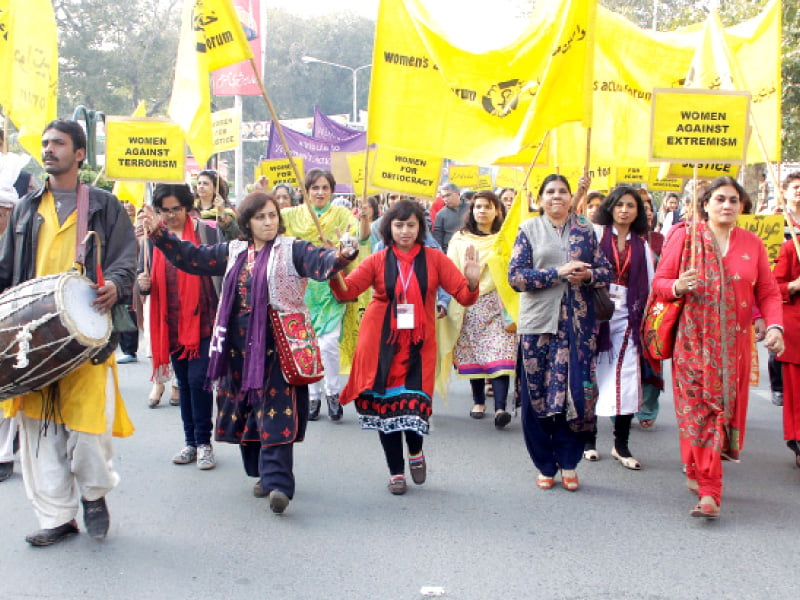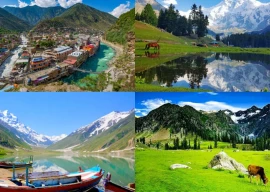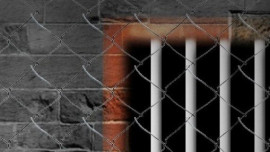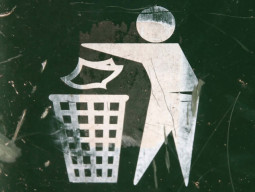
Ek Do Teen Chaar, Hum Naheen Hain Lachaar, said one of the purple banners put up at the entrance of the three-day conference organised by the Applied Socio-Economic Research (ASR) Resource Centre.
The conference A Celebration of Women: In Struggle Together, which ended Tuesday, was held to commemorate the events of February 12, 1983, when members of the Women Action Forum and other rights activists were attacked by the police while protesting against the promulgation of the amended Law of Evidence making two women witnesses equal to one male.
Senior members of the Women’s Action Forum – also debated the consequences of the proposed negotiation with the Taliban. Anis Haroon, the National Commission on the Status of Women chairperson, said “This will be a compromise... a compromise we are not willing to make,” she said. Haroon said the government should not negotiate with the Taliban, because they did not respect the basic rights of citizens. “We cannot afford to be complacent at this stage, we have to hold our ground,” she warned.

Poet Kishwar Naheed said that the government apparently had no option but to talk with the Taliban as it tended to follow ‘foreign dictation’ in such matters. “Even the most secular of all political parties, the ANP, has agreed to talk with [them],”she said, “Who is left to challenge this [policy]?”
Earlier, in a panel discussion on Resurgent Patriarchies, women activists from across the country shared their experiences about the severity of the challenges women face.
“In our district, women cannot cast a vote [for a candidate] of their choice; they have to abide by the wishes of their men,” said Shabnam Qadir, a Rahim Yar Khan activist. Qadir said she had had to fight for everything, “from my right to property to my right to education.”
“Property is something exclusive for men... the sons,” she said. Qadir described the disputes she had with her father after he wouldn’t give her a share in the family.
She was described as “adventurous” and “rebellious” by her family after she insisted that she be allowed to study at a university. Like in most of rural areas across the country, it was unimaginable for a woman to challenge the men in her family.
Even her name, Shabnam, earned her family’s disapproval. Members of her family objected to it because she shares the name with an actress. “I cannot call myself Shabnam back home. There, I call myself Shabana,” she said. “I am happy today to be amongst people who address me by my real name,” she added.
A writer and sub-editor of Tanqeedi Shaoor, a magazine from Khuzdar, Kawish Mehbub, said that many women contributors had stopped writing for the magazine “out of fear of a backlash”. They were so scared that they even refused to write under pseudonyms.
Mehbub, who is also working towards a degree in civil engineering from the Balochistan University of Engineering and Technology in Khuzdar, said that female students were forced to wear burqa and niqab. When she asked the student council why it was required, she said she was told that girls who “only wore a chaddar looked ‘attractive’”. She could not stop herself from retorting, “Jinn ko attractive lagti hain unko rokain” (stop those who find girls in a chaddar attractive).
Writer Amar Sindhu said that while during General Zia’s regime, the state had made things difficult for women – through its institutions and laws – the challenges now came from within their homes, on the streets and at workplaces. Speaking about feminism in Sindh, she said, “Our February 12 has yet to come.” Speaking during the concluding session, And Still Like Dust I’ll Rise, ASR executive director Nighat Said Khan regretted that the state still failed to recognise women as individuals in their own right. “You need to be associated with [a man] to be recognised as an individual or a citizen of the state,” she said.
The conference concluded with women activists, with yellow dupattas and purple stoles around their necks, singing Tumhara saath milnay say ehsaas-e-quwwat aya hai’ (Your support makes us feel empowered). Later, more than 200 women walked from Regal Chowk to the Lahore High Court and back. Madeeha Gauhar, Nighat Said Khan and Amar Sindhu were prominent rally participants.
Published in The Express Tribune, February 13th, 2013.

















COMMENTS
Comments are moderated and generally will be posted if they are on-topic and not abusive.
For more information, please see our Comments FAQ